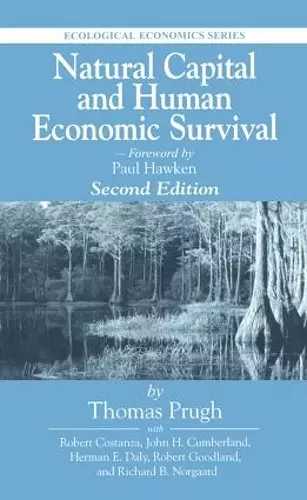Natural Capital and Human Economic Survival
John H Cumberland author Herman Daly author Robert Goodland author Richard B Norgaard author Thomas Prugh author
Format:Hardback
Publisher:Taylor & Francis Inc
Published:20th May '99
Currently unavailable, and unfortunately no date known when it will be back
This hardback is available in another edition too:
- Paperback£62.99(9780367399726)

Most people love nature and consider themselves environmentalists, but nature isn't just pretty and lovable, it is indispensable to our survival and economic activity. That is the most compelling reason for environmental protection. The conventional economic wisdom views land (natural capital) as a small part of the economy, along with capital, labor, technology and so on. The authors argue that this is backwards: that the economy nests within the environment (land) and not the other way around. The authors give a brief history of the origins of conventional economic wisdom and critique it from a the standpoint of ecological economics. They explain what natural capital -our life support system - is and does, and describe the severe strains that have been put on it. They conclude with some policy options, such as green taxes and suggestions for personal action that would conserve natural capital and thus make conserve resources for present and future generations. Natural Capital and Human Economic Survival is written for environmentalists, environmental studies majors and anyone concerned about the flaws of mainstream economics - how it has led us into unsustainable ways of living - and who would like to learn about alternatives that are more sustainable.
"In this second edition, excellent insights into the fields of ecological and environmental economics are provided…very readable and understandable publication…recommended for all readers, the general public and up, with an interest in the environment." -B.J. Peterson in Choice, December 1999 "Sustainability is a widely accepted ideal for investigating and managing natural resources, but disciplined efforts to make its core principles operational are rare. This book is exceptional in developing a common, analytic framework and language for investigating how human institutions interact with ecological systems." Sarah Michaels, School of Planning, University of Waterloo, Ontario, Canada
ISBN: 9781566703987
Dimensions: unknown
Weight: 540g
204 pages
2nd edition